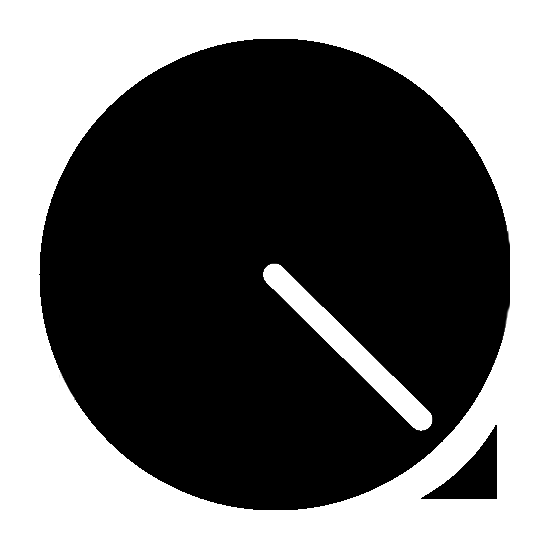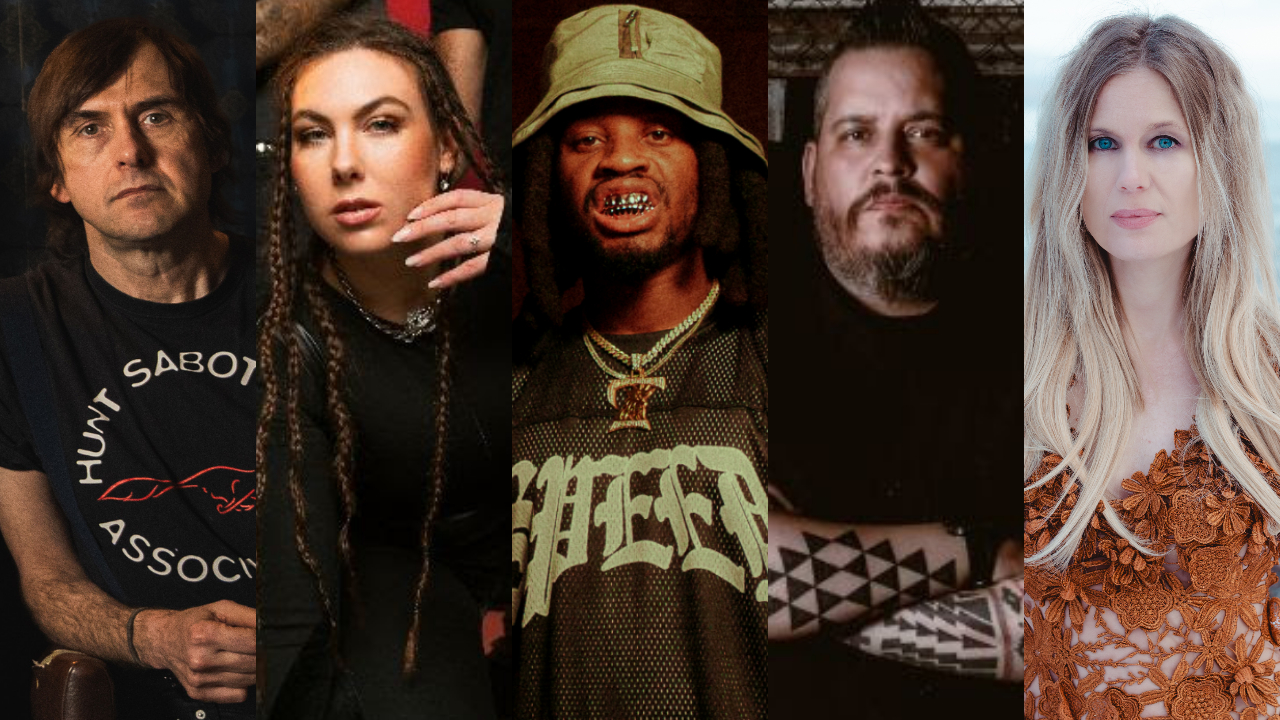Select the newsletters you’d like to receive. Then, add your email to sign up.
You are now subscribed
Your newsletter sign-up was successful
Want to add more newsletters?

Every Friday
Louder
Louder’s weekly newsletter is jam-packed with the team’s personal highlights from the last seven days, including features, breaking news, reviews and tons of juicy exclusives from the world of alternative music.

Every Friday
Classic Rock
The Classic Rock newsletter is an essential read for the discerning rock fan. Every week we bring you the news, reviews and the very best features and interviews from our extensive archive. Written by rock fans for rock fans.

Every Friday
Metal Hammer
For the last four decades Metal Hammer has been the world’s greatest metal magazine. Created by metalheads for metalheads, ‘Hammer takes you behind the scenes, closer to the action, and nearer to the bands that you love the most.

Every Friday
Prog
The Prog newsletter brings you the very best of Prog Magazine and our website, every Friday. We'll deliver you the very latest news from the Prog universe, informative features and archive material from Prog’s impressive vault.
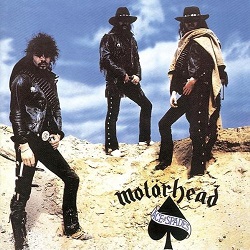
20) Motörhead - Ace Of Spades (1980)
As we've already mentioned, there’s little doubt that 1980 was a vintage year for hard rock and metal albums – and this stunner was right up there with the best. A masterpiece, and the culmination of five years’ blood, sweat and JD shots for Lemmy, it’s a triumph of substance and style over trend, and the record that put Motörhead right into the heart of the public’s affections.
No argument: this is the best studio album from the definitive Motörhead line-up of Lemmy, ‘Fast’ Eddie Clarke and ‘Philthy Animal’ Taylor, and whatever happened in the studio produced a towering classic. The predecessor to No Sleep ’Til Hammersmith, Ace Of Spades was where it all came together for the band in a blizzard of talcum powder (Shurely shome mishtake? – Ed.) and 100-per-cent-proof noise.
Uncompromising yet commercial, edgy yet radio-friendly, Motörhead weaved a unique fabric of energy, riffs, melody and wit. Mere mention of the song titles – Ace Of Spades, (We Are) The Roadcrew, Jailbait – is enough to get the blood pumping. But the whole is greater than the sum of individual tracks.
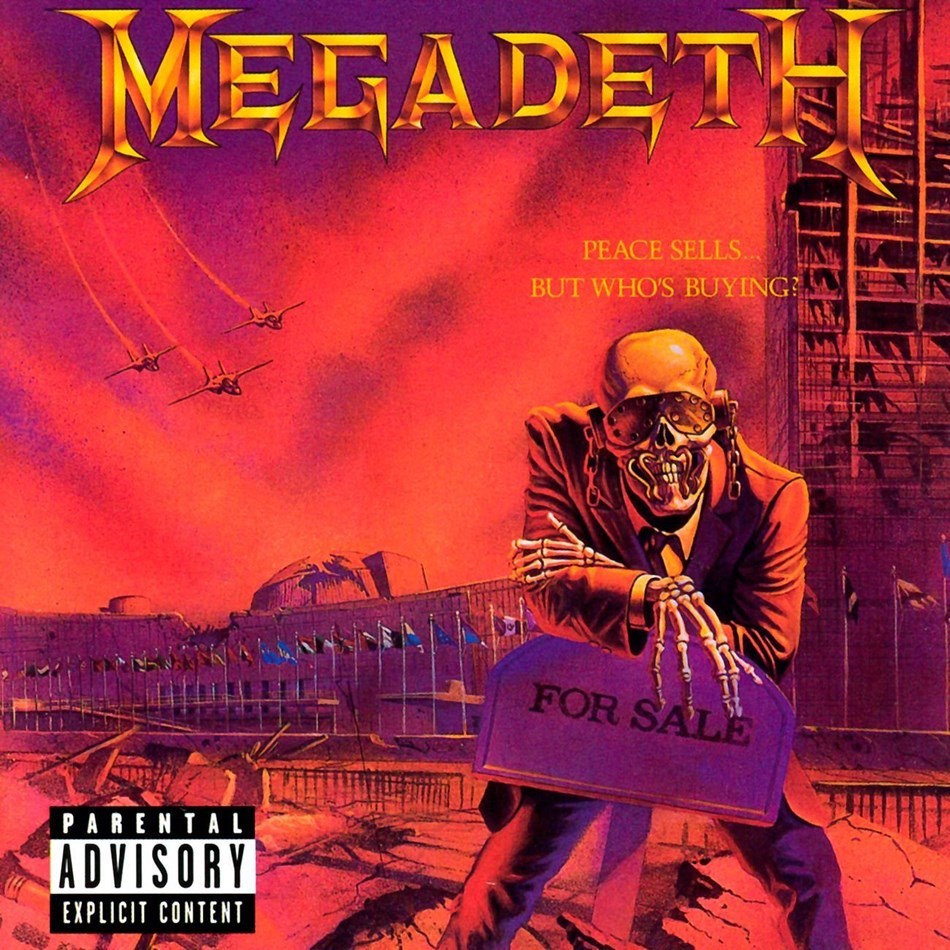
19) Megadeth - Peace Sells... But Who’s Buying? (1986)
Since his acrimonious departure from Metallica in 1983, Dave Mustaine has busied himself with being a thorn in his old band’s side. Fortunately for metal fans, much of this has come in the form of great metal. Peace Sells... is not only the best Megadeth album, but also one of the very best thrash records ever.
Dark, raging and vastly more inventive than anything else that was going on in the thrash scene, Peace Sells was a fearsome affirmation of values and skill that enabled Megadeth to snap at Metallica’s heels for the first time. But this was far more than an exercise in high speed. The songs were well constructed, mixing complexity with easy tunes, and with the line-up by then voraciously feeding off each other the musicianship was of the highest order.
Every track is a gold-plated winner, with Devil’s Island and Good Mourning/Black Friday among the truly great songs of the 80s. And covering bluesman Willie Dixon’s I Ain’t Superstitious was a stroke of genius. Songs like Wake Up Dead and the immortal title track are so firmly established as classic speed metal anthems that it seems a bit redundant to sing their praises again. But let’s do it anyway. Peace Sells... fucking slays.
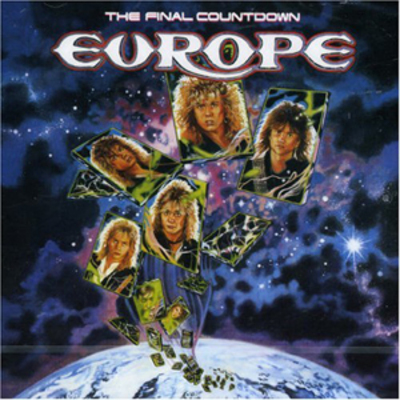
18) Europe - The Final Countdown (1986)
Who would have thought five Deep Purple-obsessed Swedes would go some way to stealing Jon Bon Jovi’s thunder in his year of ascension to the hair-metal crown? But Joey Tempest and the rest of Europe (the band, that is) went one better than Jon by scoring a No.1 single, with The Final Countdown.
The latest news, features and interviews direct to your inbox, from the global home of alternative music.
The title track of Europe’s third album is over 30 years old now, but it’s still among the most celebrated run of notes in popular music – so ubiquitous that the Queen could most likely hum it upon request.
“It was the opening for us to go on our journey," Tempest told Classic Rock in 2015. "It gave us that chance to be a touring band, and it gave us an opening to be here today. It’s been an interesting journey, and it’s still with us. We play it live, and we love playing it live… because that’s where it belongs. It’s a part of our history.”

17) Rush - Permanent Waves (1980)
The album that laid the foundations for Rush’s post-sword-and-sorcery career. After 1978’s confused Hemispheres, Permanent Waves highlighted a leaner and less convoluted approach. It was the kid brother to Moving Pictures, and the album where Geddy Lee first properly explored vocal ranges that didn’t scare dogs.
Rush wrote deceptively memorable songs, while at the same time retaining their art-rock tendencies, and due to its unexpected hit single The Spirit Of Radio, this is perhaps the one Rush album bought by non-fans – many of them doubtless attracted by the Police-like reggae break in that track.
For the rest of us, Free Will and the brooding Jacob’s Ladder reminded us of the old Rush of Ayn Rand and sci-fi. Then a pair of beautiful love songs – Entre Nous and Different Strings – hinted at a more romantic future. But rather than getting soppy, the album closes with a three-parter, Natural Science, that is both big and clever.
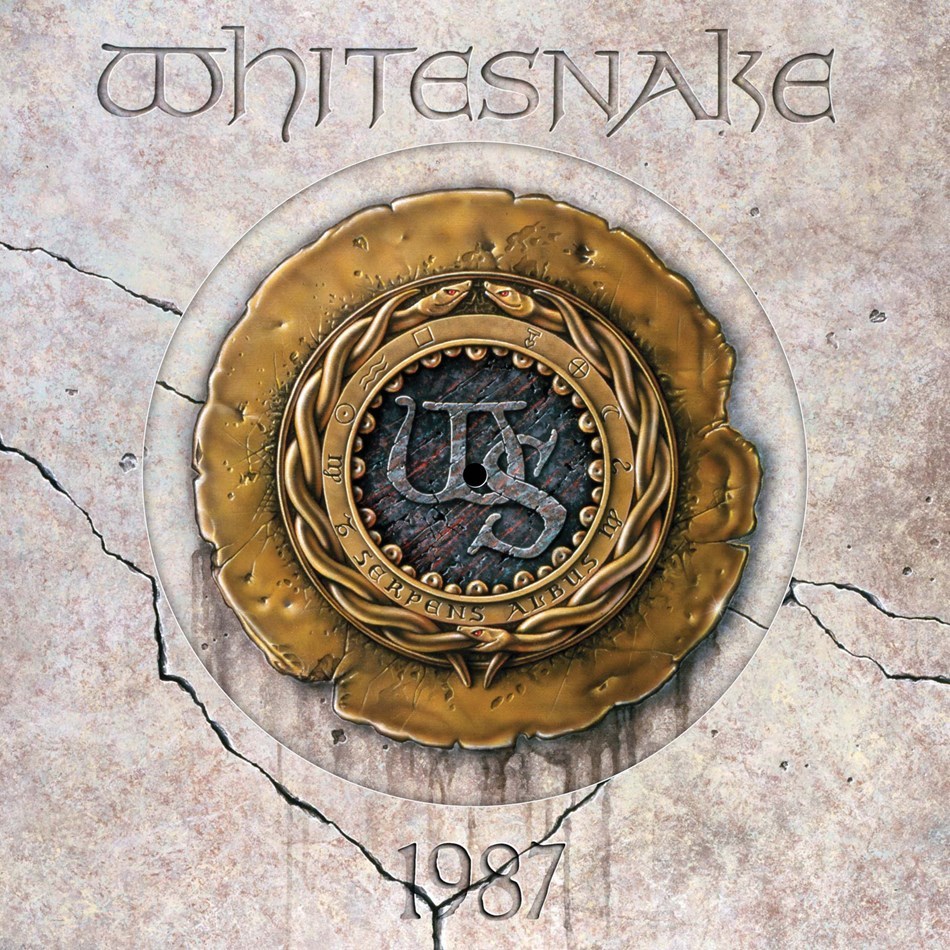
16) Whitesnake - 1987 (1987)
It’s Whitesnake Jim, but not as we knew ‘em. With David Coverdale giving his old ‘Snake chums their marching orders, he teamed up with more MTV-friendly faces and recorded the mighty 1987.
But for all the drama that preceded its creation, Coverdale and co. managed to produce an album that oozed 80s class. Alongside Def Leppard’s Hysteria, Bon Jovi’s Slippery When Wet and Guns N’ Roses Appetite For Destruction, 1987 stands as the high-water mark of the MTV rock era, a blow-dried masterpiece wherein the blues moved to LA, got itself a spray tan and a perm and proceeded to hump the entire western hemisphere and a fair chunk of the eastern one into submission.
The songs that make up 1987 are ingrained into the DNA of anyone who grew up during that glorious decade. Chock full of hit singles – Here I Go Again, Is This Love, Crying In The Rain – it took the US (and world) by storm. The crackling moods of Still Of The Night (the greatest/most shameless Zeppelin knock-off known to man) and the priapic thunder of Give Me All Your Love Tonight just made it all the more tantalising. Its success was helped by the appearance of David’s impossibly glamorous then-wife Tawny Kitaen in the accompanying video clips.
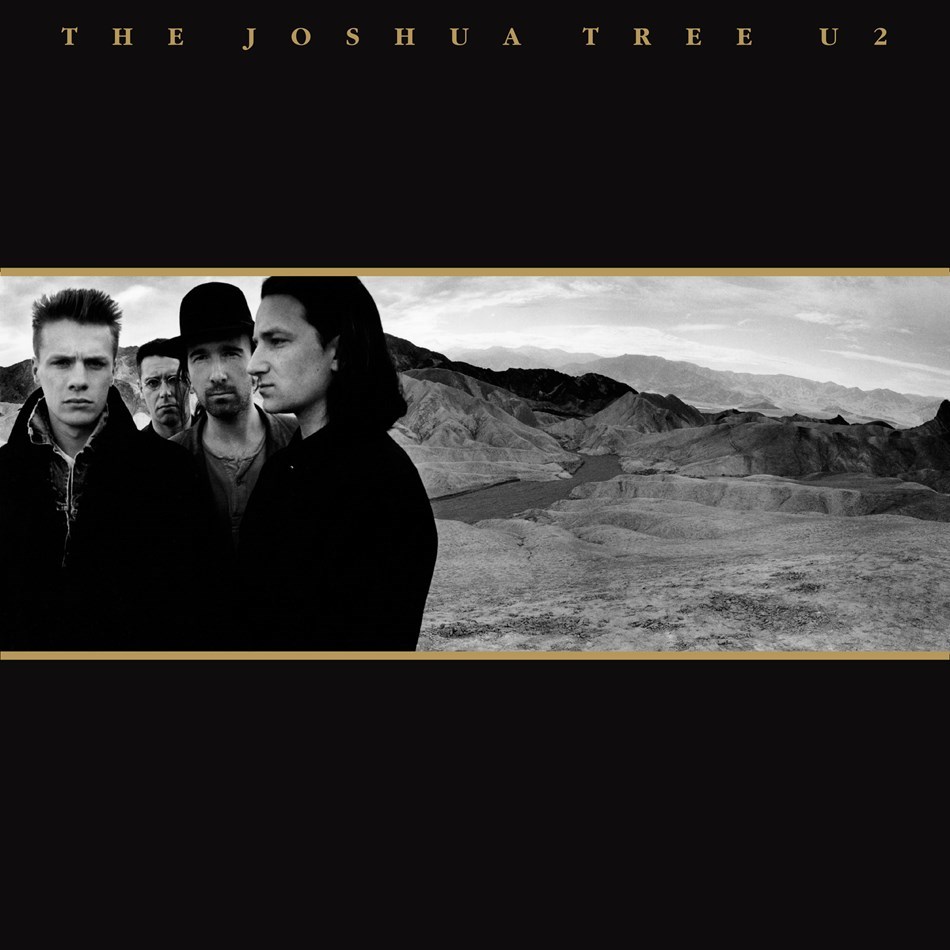
15) U2 - The Joshua Tree (1987)
With Daniel Lanois in the producer’s chair, U2 performed one of the most impressive about-turns in alt-rock history, finally made good on their earlier promise, and broke through to mainstream success.
The Edge’s distinctive guitar playing fuels the hypnotic Pride (In The Name Of Love) and the anthemic I Still Haven’t Found What I’m Looking For, while Bono’s passionate reading of the lovelorn With Or Without You and the relentless Bullet The Blue Sky shows a band at the very top of their game.
"It was such a shock at the time to hear that from U2 that you had to play it a few times to get into it," Magenta's Rob Reed told us in 2017. "The more I played it, the more I got into it, and as much as I enjoyed it at the time, it’s gotten better with age. You hear the tracks in isolation now and appreciate them even more – they’re like antique bits of furniture! I Still Haven’t Found What I’m Looking For – oh, my god, there’s just something about that song."
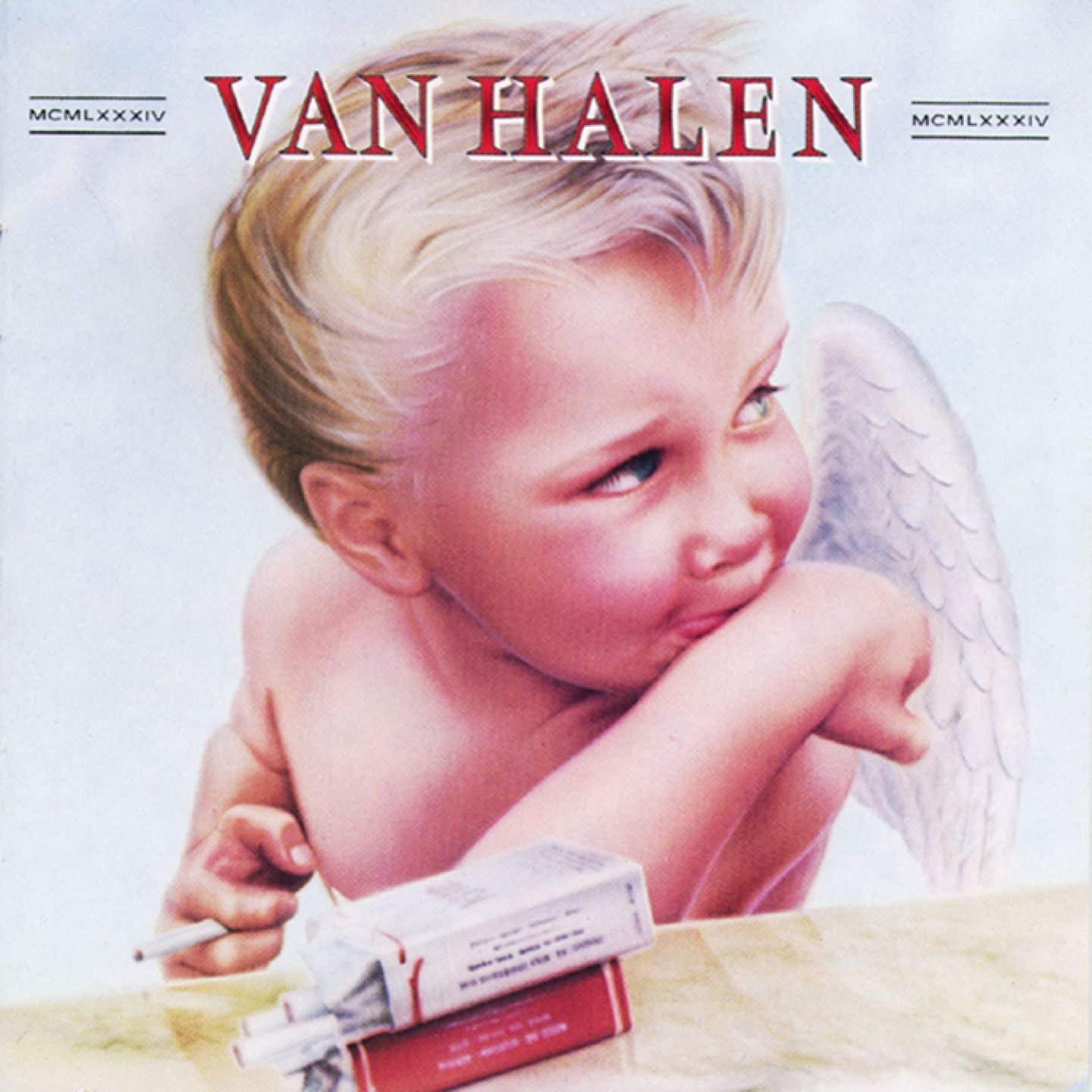
14) Van Halen - 1984 (1984)
The last album made before David Lee Roth quit was also the one that made Van Halen a household name on both sides of the Atlantic when its lead single Jump hit number 7 on the UK chart (As Roth is fond of pointing out, he flounced out of Van Halen at the band’s commercial peak).
Artistically, 1984 reversed a worrying trend of inconstancy. To differing extents, the singles Jump and I’ll Wait introduced keyboards to the mix, meaning guitar hero Eddie could beat all those airy-fairy synth-pop acts at their own game.
But Panama, Hot For Teacher and House Of Pain rocked with inevitable bravado and humour and had enough hard-edged crunch to ensure that the band’s hairy fan-base wasn’t alienated.
On 1984, Van Halen could do no wrong… but without Roth, they would never be as great again.
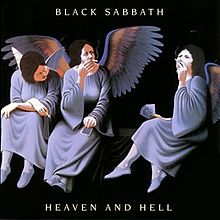
13) Black Sabbath - Heaven & Hell (1980)
The heavy metal world was agog when Ozzy was replaced by Ronnie James Dio. Could the mighty Sabbath ever recover from the loss of their talisman? Would the mythical visions of ex-Rainbow vocalist Dio fit comfortably with Sabbath’s bloody bomb-burst?
Luckily, the answer was an emphatic yes: le petit Ronald discarded the blouse he used to wear in Rainbow, and put on a studded leather jerkin instead. But seriously, Heaven And Hell was an improbable success. Somehow, Dio’s mystical blatherings melded perfectly with the Sabs’ implausible weightiness. It was a marriage made in Heaven… and Hell.
The band began to enjoy a fresh impetus after the disappoints of previous albums Technical Ecstasy and Never Say Die!, both of which featured an increasingly bamboozled Sir Oswald Of Osbourne. In fact, the first cut on Heaven And Hell, the majestically metalliferous Neon Knights, is just about the best thing a certain pocket-sized magician with the initials RJD ever did.
And speaking of Dio...
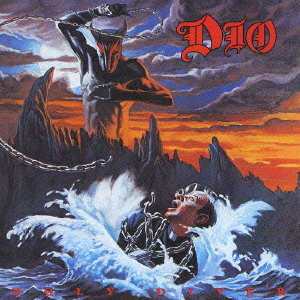
12) Dio - Holy Diver (1983)
Best known as the Rainbow singer who left the band before they cracked the charts, and the man who replaced Ozzy in Sabbath, rock singer par excellence Ronnie James Dio kicked off his solo career in style with the third classic album he’d sung on.
One of the classic heavy metal debuts, Holy Diver is a work of such bravura and bombast that Sounds magazine stated emphatically: “Ronnie James Dio has thundered back.”
This was a new beginning for Ronnie, but his past was in evidence both in his choice of two former bandmates (ex Rainbow bassist Jimmy Bain, ex-Sabbath drummer Vinny Appice) and in the epic feel of the music. The little fella’s masterstroke was the acquisition of 19-year-old guitarist Vivian Campbell, the man who “put the fast in Belfast”, who gave the band a vital, contemporary edge.
With its electrifying opener Stand Up And Shout, its spooky title track and the majestic Rainbow In The Dark, Holy Diver was the album on which Dio, the man, was able to fully realise his own singular vision.
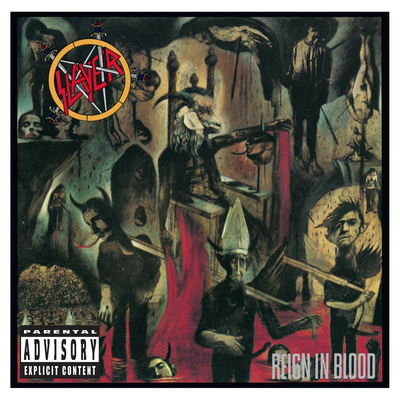
11) Slayer - Reign In Blood (1986)
On October 7, 1986, Slayer released their third album. Heavy music would never be the same again.
Reign In Blood is not just a classic metal record, it’s an ageless masterpiece that has influenced thousands of bands over the last 30 years. Just under 29 minutes of breakneck savagery, infernal proclamations and a near-chewable sense of barely-controlled chaos, it both defined Slayer’s trademark sound and upped the ante for the entire thrash scene, inadvertently inspiring a generation of like-minded reprobates to take metal ever further into the hissing drool-pits of Cthulhu’s pitch-black maw.
With Rick Rubin producing, everything was taken to a height nobody would ever scale again. The playing was world class, the songs were stunning, the production balanced technology with the brute force of their live performance. Best of all, its <30 minutes runtime meant that it never outstayed its welcome. From the moment opening track Angel Of Death kicks in to the last chords of closer Raining Blood, this is peerless.
Current page: The 50 best albums of the 80s: 20-11
Prev Page The 50 best albums of the 80s: 30-21 Next Page The 50 best albums of the 80s: 10-1Louder is the ultimate resource for alternative music coverage and the home of iconic rock brands Classic Rock, Metal Hammer and Prog. With a combined reach of over five million followers across social media, we're the largest and most influential alternative music website in the world.
